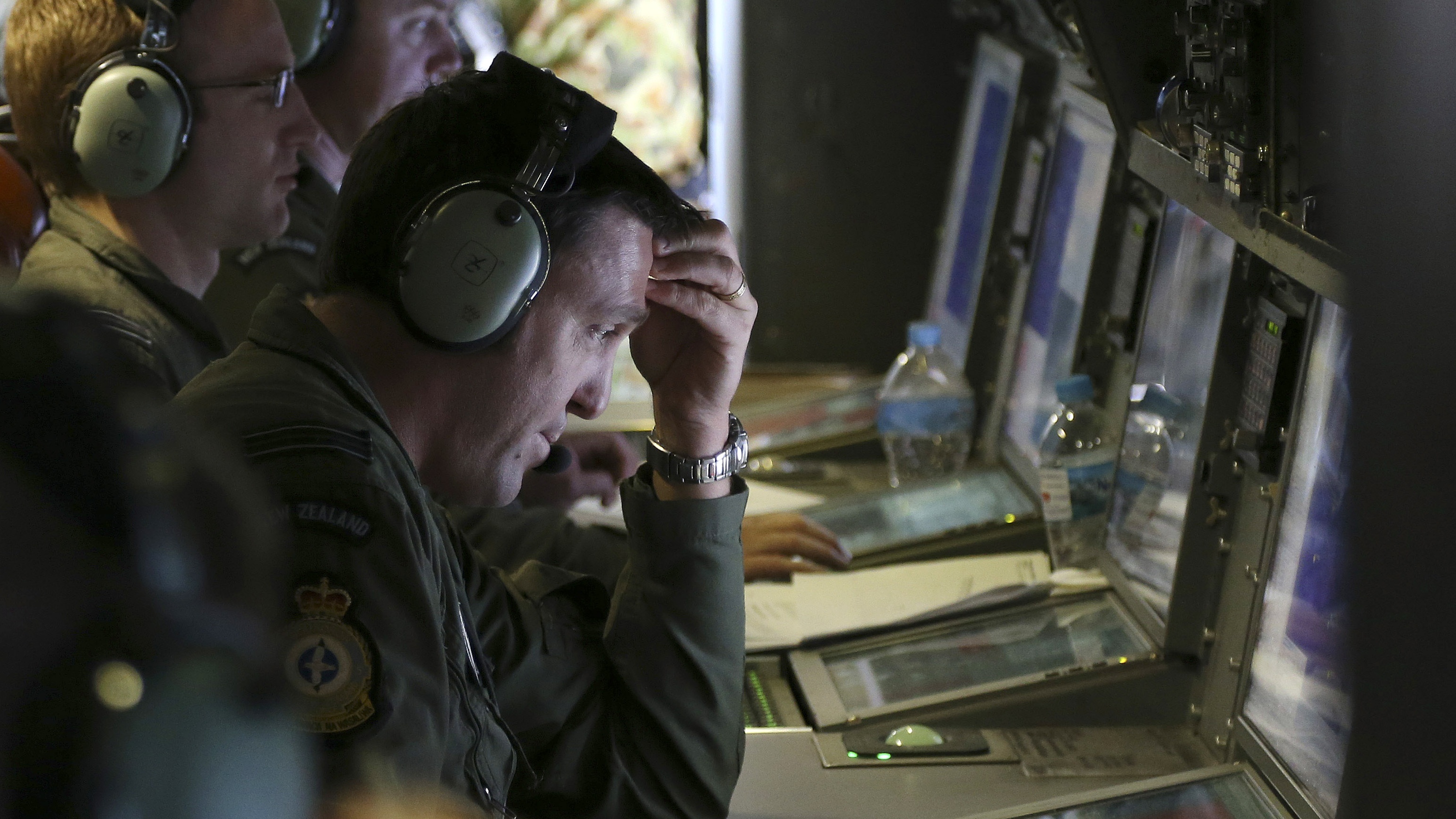New evidence points to final resting place of missing MH370
Findings of ocean study fuels call for reopening of search for lost Malaysia Airlines jet

A free daily email with the biggest news stories of the day – and the best features from TheWeek.com
You are now subscribed
Your newsletter sign-up was successful
The head of the failed search for Malaysia Airlines Flight 370 is calling for a fresh inquiry based on new evidence that may finally solve the mystery of the aircraft’s disappearance exactly seven years ago today.
Peter Foley oversaw the Australian government’s high-resolution sonar search of 50,000 square miles of Indian Ocean floor but failed to find any sign of the jet, which vanished with 239 people on board shortly after taking off from Kuala Lumpur airport on 8 March 2014.
However, Foley has now told The Times that new research by oceanographers and flight experts suggests the wreckage may lie in another, as-yet unexplored region of the ocean.
The Week
Escape your echo chamber. Get the facts behind the news, plus analysis from multiple perspectives.

Sign up for The Week's Free Newsletters
From our morning news briefing to a weekly Good News Newsletter, get the best of The Week delivered directly to your inbox.
From our morning news briefing to a weekly Good News Newsletter, get the best of The Week delivered directly to your inbox.
The Sun reports that the new evidence is based on “analysis of a piece of Boeing 777 debris that washed up on a beach in South Africa last August”. A newly released report by an independent group of experts says that the wing spoiler is believed to be from MH370 and that the damage indicates it was torn off the aircraft in an uncontrolled high-speed dive.
The finding “counters alternate theories of a ditching by a rogue pilot”. And “ocean drift analysis and a review of a revised flight path” suggest that the plane probably “went down about 1,200 miles west of Cape Leeuwin, Western Australia, in an area notorious for its deep ocean floor canyons and underwater mountains”, The Times adds.
Foley told the paper that “a new inquiry should inspect the sea floor 70 nautical miles either side of the target area”.
The Malaysian government has previously said that it would need compelling new evidence before mounting another search.
A free daily email with the biggest news stories of the day – and the best features from TheWeek.com
Joe Evans is the world news editor at TheWeek.co.uk. He joined the team in 2019 and held roles including deputy news editor and acting news editor before moving into his current position in early 2021. He is a regular panellist on The Week Unwrapped podcast, discussing politics and foreign affairs.
Before joining The Week, he worked as a freelance journalist covering the UK and Ireland for German newspapers and magazines. A series of features on Brexit and the Irish border got him nominated for the Hostwriter Prize in 2019. Prior to settling down in London, he lived and worked in Cambodia, where he ran communications for a non-governmental organisation and worked as a journalist covering Southeast Asia. He has a master’s degree in journalism from City, University of London, and before that studied English Literature at the University of Manchester.
-
 Epstein files topple law CEO, roil UK government
Epstein files topple law CEO, roil UK governmentSpeed Read Peter Mandelson, Britain’s former ambassador to the US, is caught up in the scandal
-
 Iran and US prepare to meet after skirmishes
Iran and US prepare to meet after skirmishesSpeed Read The incident comes amid heightened tensions in the Middle East
-
 Israel retrieves final hostage’s body from Gaza
Israel retrieves final hostage’s body from GazaSpeed Read The 24-year-old police officer was killed during the initial Hamas attack
-
 China’s Xi targets top general in growing purge
China’s Xi targets top general in growing purgeSpeed Read Zhang Youxia is being investigated over ‘grave violations’ of the law
-
 Panama and Canada are negotiating over a crucial copper mine
Panama and Canada are negotiating over a crucial copper mineIn the Spotlight Panama is set to make a final decision on the mine this summer
-
 Why Greenland’s natural resources are nearly impossible to mine
Why Greenland’s natural resources are nearly impossible to mineThe Explainer The country’s natural landscape makes the task extremely difficult
-
 Iran cuts internet as protests escalate
Iran cuts internet as protests escalateSpeed Reada Government buildings across the country have been set on fire
-
 US nabs ‘shadow’ tanker claimed by Russia
US nabs ‘shadow’ tanker claimed by RussiaSpeed Read The ship was one of two vessels seized by the US military


